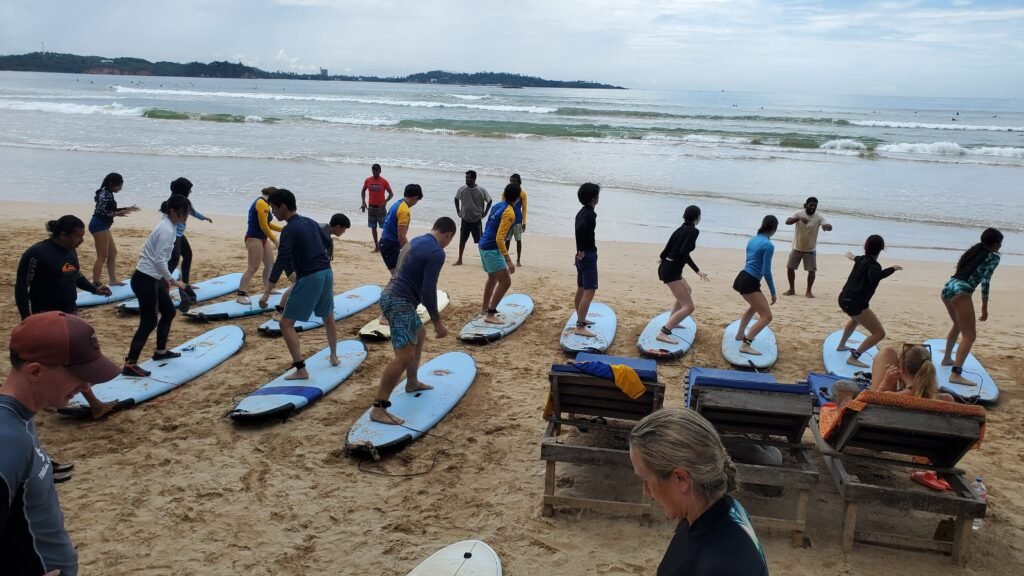
The idyllic beach town of Weligama, long celebrated as one of Sri Lanka’s top surf destinations, is facing a major shake-up. In a sudden move, the Sri Lankan government has begun removing unauthorized surf school structures along the shoreline, leaving instructors, tourists, and locals scrambling for answers.
The crackdown has sparked protests, confusion, and heated debates—so what’s really going on?
Why Is the Government Removing Surf Schools in Weligama?
1. Illegal Structures & Lack of Permits
Many of Weligama’s surf schools operated for years with makeshift setups—small shacks, shaded seating areas, and board storage—without official approval. Authorities claim these structures violate coastal zone regulations, which prohibit unpermitted construction near the beach.
“We knew it was temporary, but we didn’t expect them to remove everything overnight,” said one surf instructor.
2. Environmental Protection Efforts
Weligama’s coastline is home to coral reefs, sea turtles, and delicate marine ecosystems. Unregulated surf schools have been accused of contributing to:
- Plastic pollution (broken boards, water bottles, food waste)
- Beach erosion from uncontrolled foot traffic
- Damage to coral reefs from anchors and reckless surfing
The government has emphasized sustainable tourism, and this crackdown aligns with broader efforts to protect Sri Lanka’s beaches.
3. Safety & Tourism Management
Weligama’s explosion as a backpacker and surf hotspot led to:
- Overcrowded beaches (some schools operated without proper safety standards)
- Cheap, unregulated surf rentals (posing risks to beginners)
- Chaotic beachfront development
By removing illegal structures, officials may be trying to formalize surf tourism, ensuring only licensed, professional schools (like ISA-certified operators) can function.
What’s Next for Weligama’s Surf Scene?
- Surf schools may need to apply for official permits to operate legally.
- Licensed schools (e.g., Lucky’s Surf Camp, Freedom Surf School, surf and stay) will likely survive, while informal setups may disappear.
- New regulations could improve safety & sustainability—but may also raise prices for surf lessons.
The Bigger Picture: Surf Tourism at a Crossroads
Sri Lanka wants to promote high-quality, eco-friendly tourism, but sudden crackdowns risk hurting small businesses. If handled poorly, Weligama could lose its laid-back surf charm—but if managed well, it could become a model for sustainable surf destinations.
What Do You Think?
- Should surf schools be regulated more strictly?
- Is this move good for locals, or will it kill Weligama’s surf culture?
- Have you surfed in Weligama? Share your experience!
Let us know in the comments! 🏄♂️
Book a surf lesson in Weligama with a trusted review
